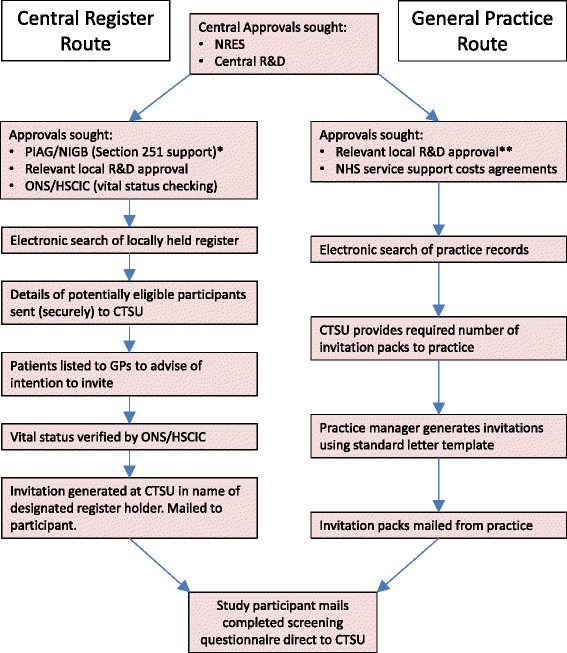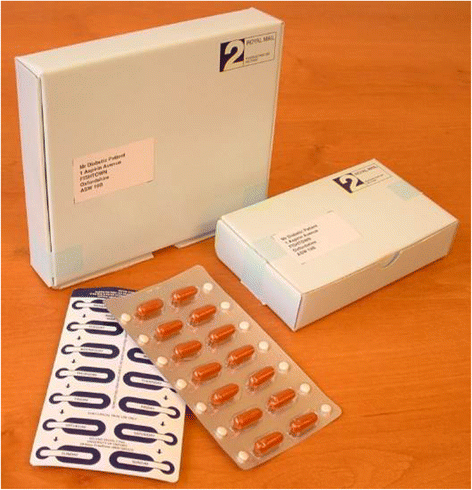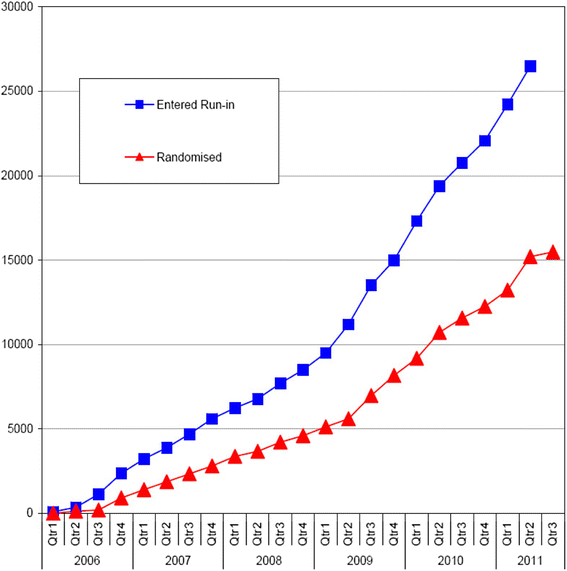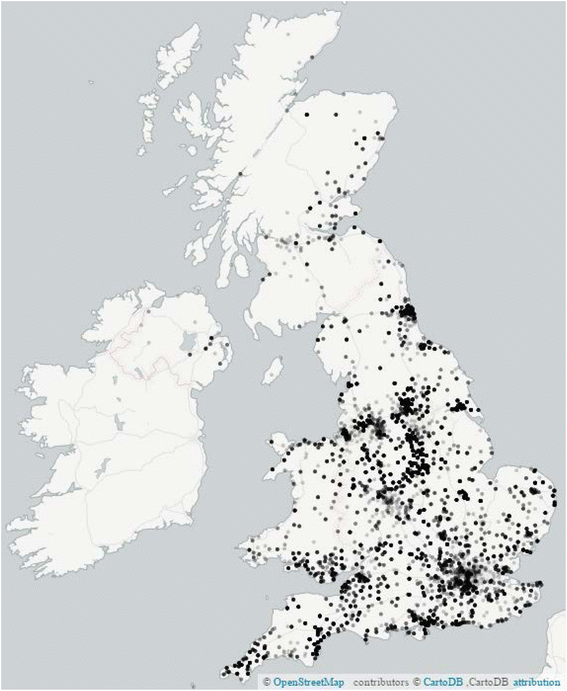Cost-effective recruitment methods for a large randomised trial in people with diabetes: A Study of Cardiovascular Events iN Diabetes (ASCEND)
- PMID: 27296091
- PMCID: PMC4907276
- DOI: 10.1186/s13063-016-1354-9
Cost-effective recruitment methods for a large randomised trial in people with diabetes: A Study of Cardiovascular Events iN Diabetes (ASCEND)
Abstract
Background: Clinical trials require cost-effective methods for identifying, randomising, and following large numbers of people in order to generate reliable evidence. ASCEND (A Study of Cardiovascular Events iN Diabetes) is a randomised '2 × 2 factorial design' study of aspirin and omega-3 fatty acid supplements for the primary prevention of cardiovascular events in people with diabetes; this study used central disease registers and a mail-based approach to identify, randomise, and follow 15,000 people. In collaboration with UK consultants and general practitioners (GPs), researchers identified potentially eligible people with diabetes from centrally held registers (e.g. for retinopathy screening) and GP-held disease registers. Permission was obtained under section 251 of the National Health Service Act 2006 (previously section 60 of the NHS act 2001) to allow invitation letters to be generated centrally in the name of the holder of the register. In addition, with the collaboration of the National Institutes for Health Research (NIHR) Diabetes and Primary Care Research Networks (DRN and PCRN), general practices sent pre-assembled invitation packs to people with a diagnosis of diabetes. Invitation packs included a cover letter, screening questionnaire (with consent form), information leaflet, and a Freepost envelope. Eligible patients entered a 2-month, pre-randomisation, run-in phase on placebo tablets and were only randomised if they completed a randomisation form and remained willing and eligible at the end of the run-in. Follow-up is ongoing, using mail-based approaches that are being supplemented by central registry data.
Results: Information on approximately 600,000 people listed on 58 centrally held diabetes registers was obtained, and 300,188 potentially eligible patients were invited to join the study. In addition, 785 GP practices mailed invitations to 120,875 patients. A further 2,340 potential study participants were identified via other routes. In total, 423,403 people with diabetes were invited to take part; 26,462 entered the 2-month, pre-randomisation, run-in phase; and 15,480 were randomised.
Conclusion: If sufficient numbers of potentially eligible patients can be identified centrally and the trial treatments do not require participants to attend clinics, the recruitment and follow-up of patients by mail is feasible and cost-effective. Wider use of these methods could allow more, large, randomised trials to be undertaken successfully and cost-effectively.
Trial registration: Current Controlled Trials, ISRCTN60635500 , registered on 14 July 2005.
Keywords: Aspirin; Cardiovascular disease; Diabetes; Omega-3 fatty acids; Randomised controlled trial; Recruitment methodology.
Figures





References
Publication types
MeSH terms
Substances
Associated data
Grants and funding
LinkOut - more resources
Full Text Sources
Other Literature Sources
Medical

